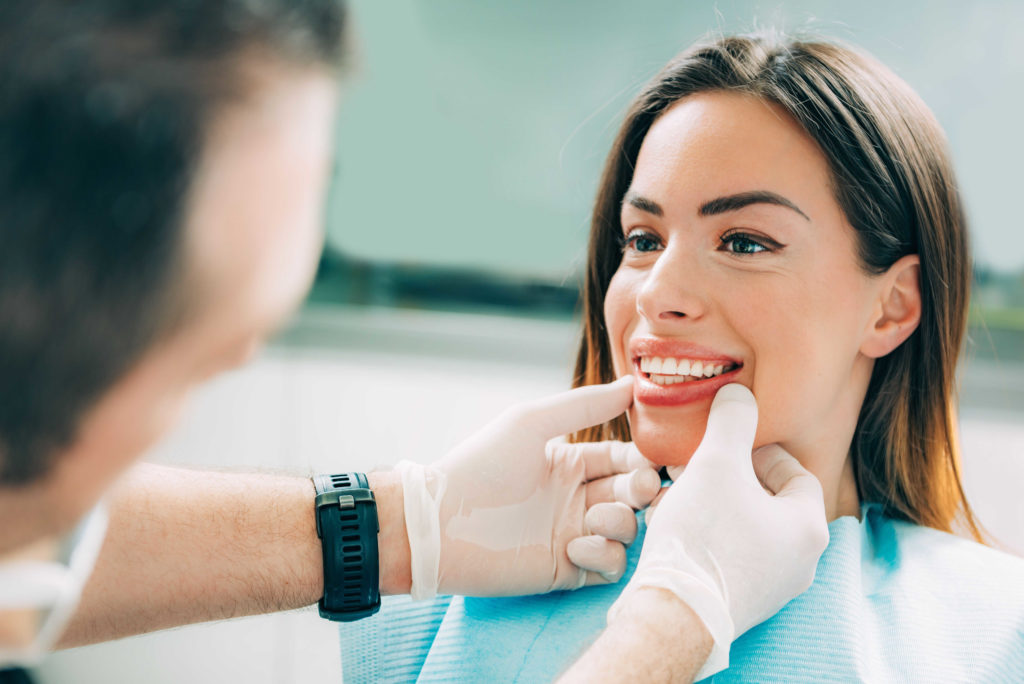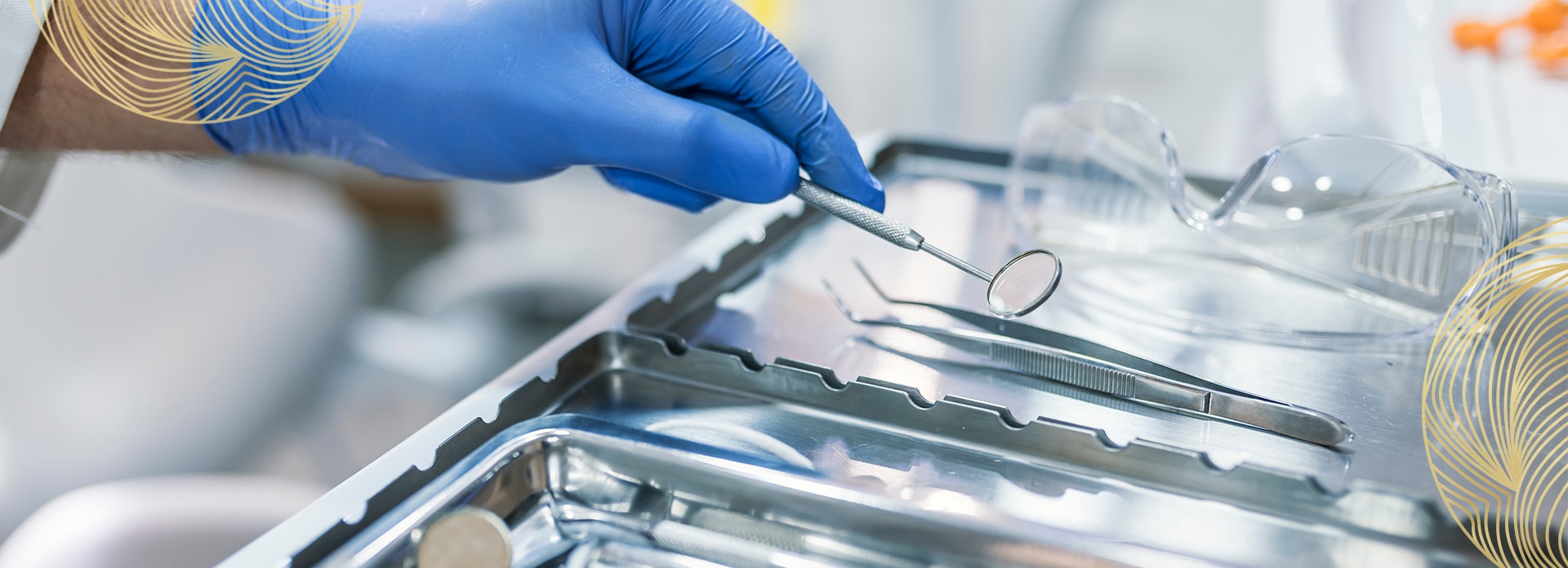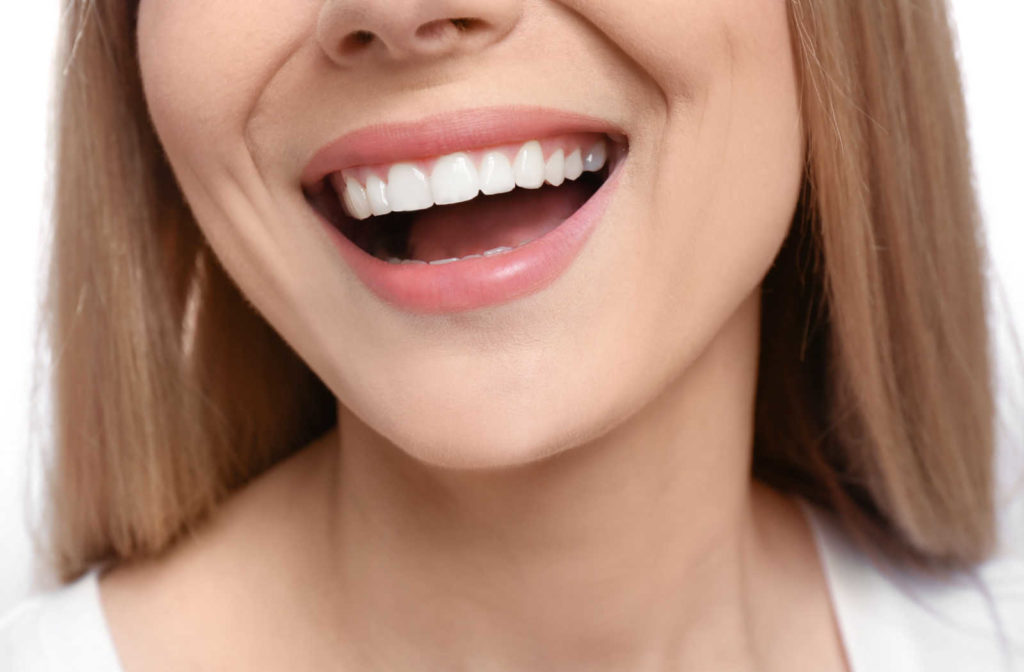Are crooked teeth holding you back from smiling big and bright? Very few people are born with perfectly straight teeth, so cosmetic dentistry options are available to help you show off your smile.
Not only can straight teeth boost confidence in your smile, but straightening crooked teeth can have oral health benefits. A comprehensive consultation with Dr. Cooper can determine what correction method is right for you, including Invisalign, braces, or veneers.
What Causes Crooked Teeth?
Misaligned teeth can come from several different factors.
- Genetics: If parents have crowded and crooked teeth, children will likely struggle with the same problems. Many also inherit bite patterns, such as overbite and underbite, from a parent.
- Misaligned jaw: When the upper and lower teeth are not aligned properly, it results in a misaligned jaw, otherwise known as malocclusion. The most common types of malocclusion include overbite, when the upper front teeth cover or hide the lower front teeth, or an underbite, when the lower teeth extend beyond the upper teeth making the chin look more prominent. Overjet is also an issue when the upper jaw protrudes well past the lower jaw, i.e. the upper jaw jets out further.
- Facial injury: A hit to the face, mouth, or jaw in an accident can move teeth, knock them out, and cause your teeth to become crooked.
- Myofunctional habits: Common and seemingly harmless habits can alter the function of the mouth and the muscles causing misaligned teeth, including thumb sucking, use of pacifiers, tongue thrusting, and mouth breathing.
Oral Health Effects of Crooked Teeth
Crooked teeth are not only a symptom of dental problems but can also cause further preventable oral health issues.
- Tooth decay and gum disease: Crooked teeth can make brushing and flossing difficult. If you cannot reach the tartar and plaque buildup hiding between the teeth, you are at a higher risk of developing cavities, tooth decay, and gum disease.
- Speech and pronunciation difficulty: Your teeth help you speak clearly and enunciate words properly. Misaligned teeth can contribute to speech impediments such as lisps
- Wear and tear on teeth, gums, and jaw muscles: Crooked teeth may be to blame for teeth grinding, leading to enamel erosion and gum recession
- Lead to cracked teeth or TMD: Your jaw muscle is powerful and crooked teeth can cause cracked teeth, temporomandibular joint disorder (TMD), and chronic headaches.
- Increased likelihood of trauma or fracture or mobility: When your teeth are positioned incorrectly, it can lead to an increased risk of trauma, damage or fracture when injured. In addition, since the bite is asymmetrical, it will touch the opposing tooth off angle and continue to create extra pressure on that tooth, resulting in the tooth becoming loose.
- Lack of lip support. When teeth aren’t aligned symmetrically, the lip is also not supported properly, resulting in the upper lip sagging in places where teeth are angled inwards
Correcting your crooked teeth can improve your overall oral health and prevent the development of severe dental problems.

How to Fix Crooked Teeth
Invisalign
Invisalign is an effective and discrete method to straighten teeth and address cosmetic concerns. Many adult and teenage patients appreciate clear aligners for maintaining a smile they can show off throughout treatment.
Common orthodontic issues Invisalign can correct include:
- Crooked teeth
- Gapped teeth
- Overbite
- Crossbites
- Deep bites
- Asymmetric levels
Using a series of customized clear aligners, Invisalign gradually moves your teeth into the desired position. You will move on to a new set of aligners every 1 to 2 weeks, and we monitor your progress closely every 4 to 6 weeks to ensure your smile is on track.
If you wear Invisalign as directed for 22 hours per day, many patients complete treatment within a year. However, during your consultation with Dr. Cooper, she can outline a timeline personalized to you and your situation.
Braces
Braces can address cosmetic concerns just like Invisalign but are ideal for those with more extensive alignment issues, such as:
- Bite problems
- Jaw misalignment
Full braces use wires, brackets, and elastics to make complex adjustments. If you have rotated teeth or jaw problems, braces may be a more effective treatment to straighten your smile.
A comprehensive assessment will determine if orthodontics is the correct route to help straighten your teeth and what form of orthodontics is right for you.
Veneers
Veneers can address crooked teeth in a shorter amount of time than orthodontics. Dr. Cooper can assess the quality, shape, and size of your teeth, as well as the severity of teeth crowding, to determine if veneers are the right choice for you.
If teeth are in good condition, orthodontics may be the better option for crooked teeth. However, if you want to completely transform your smile beyond straightening teeth, veneers can also correct other cosmetic concerns, including:
- Tooth discolouration
- Chipped or broken teeth
- Teeth smaller in size
- Misshapen teeth
- Asymmetrical smile
- Redoing older dental work that is discolored or failing
At Cooper Dental, we can reshape your smile to look radiant and natural.
Dental Bonding
If you only have some minor issues, dental bonding can help create a cohesive smile. We use white filling material (composite resin) that is bonded to the crooked tooth to give the appearance of straight teeth. The result is a natural-looking, uniform smile.
Dental bonding can also repair cracked, chipped, or decayed teeth, reduce gaps between teeth, and increase tooth size with little downtime following the procedure. This is a good solution for minor corrections.
Visit Cooper Dental to Determine Which Option Is Right for You
At Cooper Dental, we have several treatment options to correct crooked teeth. Our experienced dental team can establish which treatment method is best for your smile. Book an appointment today—a visit to our clinic can start you on the journey to a straighter smile!




